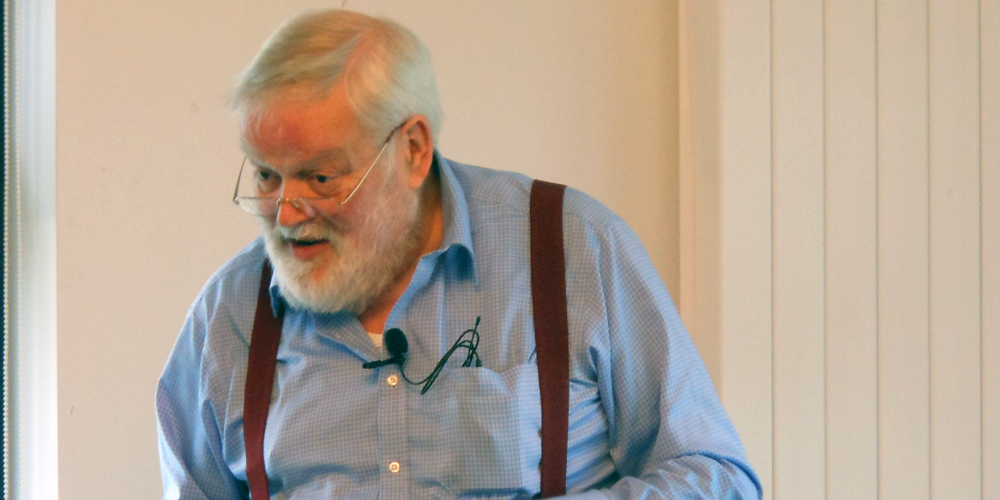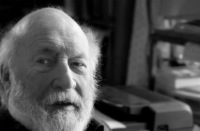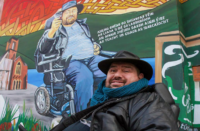Michael Longley, one of Ireland’s most celebrated poets, passed away at 85 on 22nd January 2025, leaving behind a remarkable legacy spanning more than 50 years. His death marks the end of a significant generation of Irish poets.
Longley was born in Belfast in 1939 to English parents, the same year as Seamus Heaney, who was raised in rural Co. Derry. Alongside Derek Mahon, these three poets formed a triumvirate of talent that came to prominence in the 1960s. Benefiting from the introduction of free secondary education in Britain after World War II, Longley attended the Royal Belfast Academical Institution, where his love for literature flourished. Later, at Trinity College Dublin, he immersed himself in Classics, a field that would greatly shape his poetry.
The connection between Longley, Heaney, and Mahon was pivotal. Despite their different denominational and cultural backgrounds, they became leading voices in the literary renaissance of the North of Ireland during the 1960s.
Longley often reflected on his dual identity as both Irish and British. “I feel Irish … Ireland has given me all the data out of which I make sense of life, and I think my soul would shrivel if I denied the Britannic side,” he once said. This nuanced sense of belonging and identity enriched his work, allowing him to explore themes of home and heritage with depth.
A deep sensitivity to nature and the Irish landscape was a hallmark of Longley’s poetry. His second home in Carrigskeewaun, County Mayo—his “soul-landscape”—became a recurring motif. His precise and evocative language celebrated nature’s beauty while grappling with mortality and loss.
Longley’s oeuvre spans 13 collections of poetry, beginning with No Continuing City (1969) and concluding with The Slain Birds (2022). His work explored themes of love, nature, politics, and history, including the World Wars. It earned him prestigious honours such as the PEN Pinter Prize, the TS Eliot Prize, and the Griffin International Prize.
During the Troubles, Longley often wrote about the human cost of conflict. Ceasefire, published after the 1994 IRA armistice, captures the spirit of reconciliation through a retelling of a scene from The Iliad.
The Trojan War, which began with the abduction of Helen of Sparta by Paris, lasted ten years and saw the deaths of many heroes before Troy fell to Odysseus’s cunning Trojan Horse. Homer’s Iliad focuses on a few weeks near the war’s end, zeroing in on the grief and rage of Achilles after the death of his closest companion, Patroclus, at the hands of Hector, the Trojan prince.
In the twenty-fourth and final book of The Iliad, Priam, king of Troy and Hector’s father, visits Achilles’ tent at night. He pleads for the return of Hector’s body so it can receive a proper burial. Despite being Hector’s killer, Achilles grants Priam’s request, and their shared grief creates a moment of profound humanity. Longley distills this episode into the vivid imagery of Ceasefire, written as a Shakespearean sonnet.
Ceasefire
I
Put in mind of his own father and moved to tears
Achilles took him by the hand and pushed the old king
Gently away, but Priam curled up at his feet and
Wept with him until their sadness filled the building.
II
Taking Hector’s corpse into his own hands Achilles
Made sure it was washed and, for the old king’s sake,
Laid out in uniform, ready for Priam to carry
Wrapped like a present home to Troy at daybreak.
III
When they had eaten together, it pleased them both
To stare at each other’s beauty as lovers might,
Achilles built like a god, Priam good-looking still
And full of conversation, who earlier had sighed:
IV
“I get down on my knees and do what must be done
And kiss Achilles’ hand, the killer of my son.”
At the heart of Ceasefire is the shared grief of Priam and Achilles. Each mourns someone dear to them: Priam, his son Hector, and Achilles, his companion Patroclus. Their shared pain transcends enmity, fostering a deep mutual understanding.
The poem opens with Achilles showing empathy toward Priam, reminded of his own father. Despite holding all the power, Achilles treats the king with gentleness. Priam, powerless, humbly curls at Achilles’ feet, their sorrow filling the space. The phonetics of the stanza subtly echo Achilles’ name, reflecting his presence and dominance in this scene.
In the second stanza, Achilles tenderly handles Hector’s body, preparing it for Priam to take back to Troy. The focus shifts from Achilles’ actions to Priam’s fragility and powerlessness, as underscored by the sound patterns introducing echoes of Priam’s name. Though Achilles had taken something irreplaceable from Priam, he offers the grieving father what matters most: the dignity of burying his son.
The third stanza explores the growing intimacy and equality between the two men. Phrases like “together,” “both,” and “each other’s” emphasise their shared humanity. A single line—“Achilles built like a god, Priam good-looking still”—balances their equality, like scales. This moment captures their mutual recognition and respect, hinting at reconciliation even in the face of profound loss.
Longley remains faithful to Homer, reflecting Achilles’ demigod status and Priam’s godlike presence. The fleeting moment of togetherness suggests that even enemies can transcend hatred through shared grief.
However, the poem does not end on this note of harmony alone. The concluding couplet recalls Priam’s earlier trepidation:
“I get down on my knees and do what must be done / And kiss Achilles’ hand, the killer of my son.”
The poem’s final couplet underscores the monumental step Priam takes to kneel before Achilles. This poignant ending highlights the parity of their grief: Achilles mourning Patroclus, Priam mourning Hector. The hand that killed Hector is also the one that treated his body and Priam with dignity: grief mirroring grief, loss answering loss.






